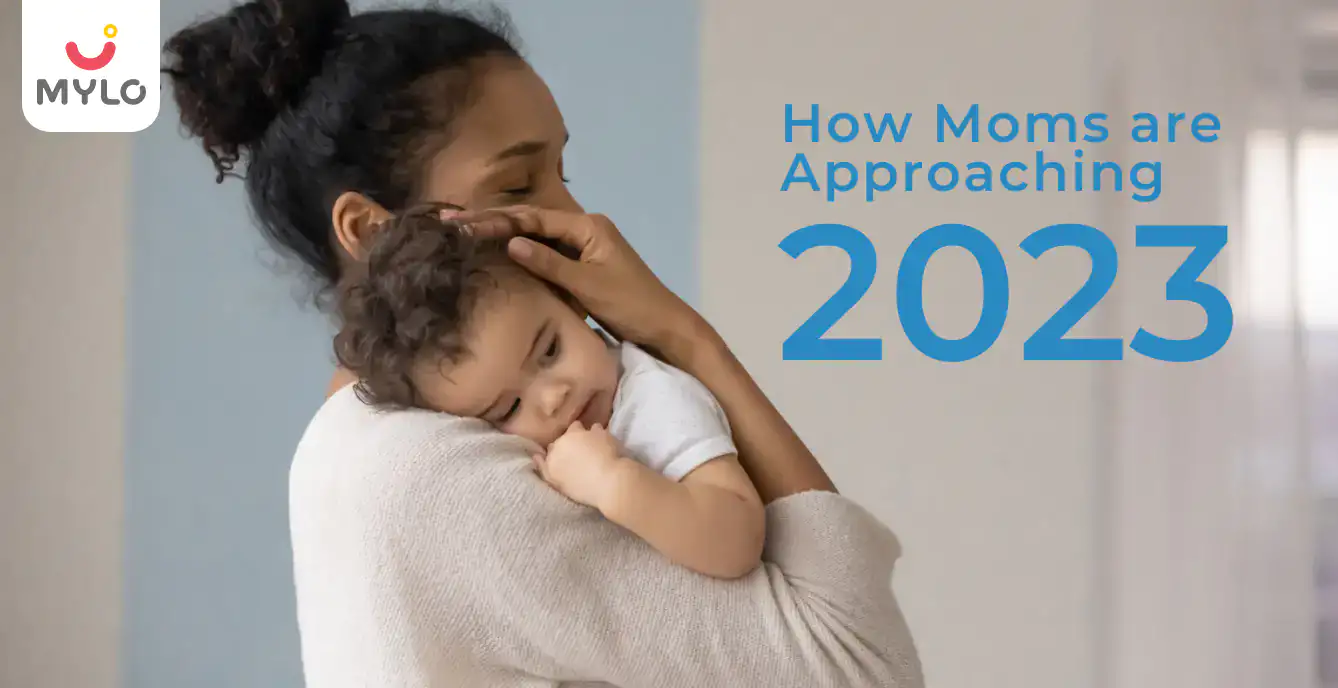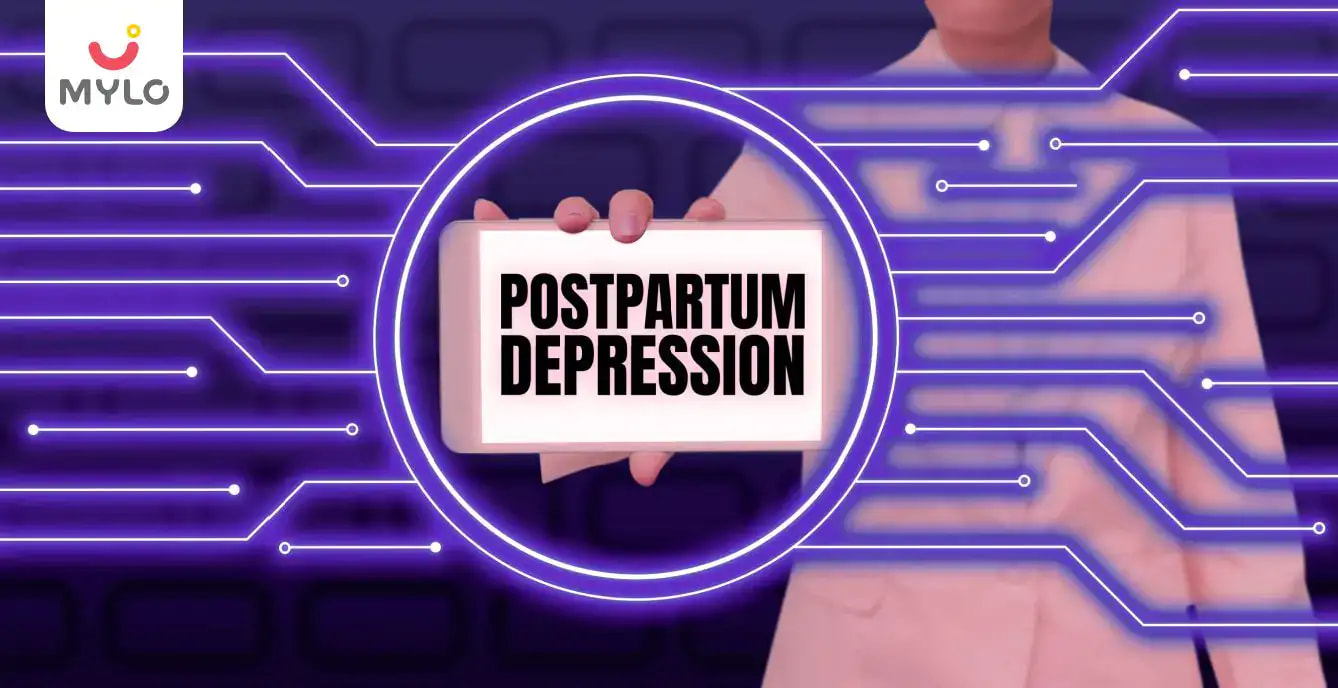Home

Depression During Pregnancy: Causes, Risks & Treatment
In this Article

Diabetes during Pregnancy
Depression During Pregnancy: Causes, Risks & Treatment
Updated on 10 January 2023
While many expect their pregnancy to be a joyful time, many experience a roller coaster of emotions from uncertainty to anxiety to worry to melancholy; the American Congress of Obstetricians and Gynecologists (ACOG) reports that 14%-23% of pregnant women experience at least some depressive symptoms.
Pregnant women are not immune to depression, a mood disease that strikes one in four women at some point in their lives. However, prenatal depression is sometimes misdiagnosed as another hormone imbalance, leading to unnecessary suffering.
If this assumption is made, pregnant women and their unborn children are in danger. Pregnancy-related depression is a medical condition that can be treated and managed with the proper care and support.
Some pregnant women experience extreme sadness and hopelessness due to depression, to the point where they have problems caring for themselves or their babies. If not treated on time and with proper attention, this depression can be really fatal for both the mother and her baby. The good news is that these symptoms can be addressed appropriately.
Talk therapy, which does not include the use of drugs, can have positive results. Sometimes, all that women desire is for somebody to hear them out. Some antidepressants are also safe and effective to take throughout pregnancy, contrary to popular belief. All you need is your doctor’s consent.
Your doctor can help you go through the specifics and guide you toward a treatment plan that works for you. Keep reading to find out more about what you can do if you or your partner are experiencing depression during pregnancy, as well as its causes and symptoms.
What Is Depression?
Depression, sometimes known as depressive disorder, major depression, or clinical depression, is a mood illness characterised by persistent melancholy and a lack of interest in formerly pleasurable activities. It can have a negative impact on your mood, thoughts, and actions, as well as your ability to go about your regular routine. Getting better will require medical attention.
Perinatal depression is depression that happens during pregnancy or in the first year after having a child. In terms of frequency, it ranks among pregnancy's most frequent medical problems. An estimated one in seven females will be diagnosed with this (about 15 per cent). Postpartum depression (PPD), or depression following a pregnancy, is included.
Always remember that it is not your fault that you are depressed. Furthermore, therapeutic intervention can enhance well-being. You and your child could suffer if you let perinatal depression go untreated. Talk to your doctor immediately if you suspect depression.
How Common Is Depression During Pregnancy?
There are happy and stressful moments throughout pregnancy. According to studies, approximately 7% of pregnant women suffer from depression—the probability of higher rates in low and middle-income countries.
Depressive disorder, characterised by an overarching sense of melancholy and lack of interest, is the most prevalent form of mental illness worldwide. Depression is twice as common in women as in males, and its development is more common when a woman is pregnant or nursing.
Does Pregnancy Cause Depression?
Joy and anxiety are both common emotions during pregnancy. According to several studies, approximately 7% of pregnant women suffer from depression during their pregnancy. There is a possibility that rates will be more significant in countries with low and moderate incomes.
The most frequent type of mood illness in the general population is depression, characterised by persistent melancholy and a loss of interest in one's usual activities. The disorder affects women at a rate two times higher than males, and the initial onset of depression reaches its highest point during a woman's reproductive years.
Why Does Pregnancy-Related Depression Frequently Go Undiagnosed?
Some signs and symptoms of depression, such as shifts in sleep, activity level, appetite, and libido, are comparable to those of pregnancy. As a consequence of this, you or your health care provider may ascribe these symptoms to your pregnancy rather than to depression because of the hormonal changes that are occurring.
Because of the social stigma that is attached to depression, some pregnant women may be hesitant to discuss their changing feelings with their doctors or other healthcare professionals. In addition, there is a propensity to concentrate more on women's physical health than their mental health while pregnant. You need to be very careful about the kind of people you talk to during pregnancy as there is always a risk of attracting more negative energy than positive.
What Are The Risks Of Depression In Pregnant Women?
Depression during pregnancy is common. However, there may be some more vulnerable women. If you fall into any of these categories, you might be more likely to suffer from depression when you're expecting:
1. You either suffer from depression or anxiety or have family issues.
You should discuss the increased risk of depression during pregnancy with your doctor if you have a history of depression or a family history of depression.
2. There is significant pressure on you right now.
Pregnancy depression can be caused by emotional stress, such as caring for an elderly relative, grieving the loss of a loved one, arguing with a partner, or worrying about money.
3. You've got a rough pregnancy to deal with.
It's natural to worry about losing a pregnancy if you have had difficulty conceiving, have had a miscarriage, or are carrying a high-risk pregnancy. Pregnant women under this kind of stress are more likely to develop depression.
4. You didn't anticipate being pregnant.
Pregnant women who do not wish to have children are more likely to experience depression.
5. You have diabetes.
Depression during pregnancy has been linked to both diabetes and gestational diabetes.
6. You have no one to lean on for emotional or social support.
Being pregnant can be emotionally trying, and feeling isolated during this time might heighten the risk of depression.
7. You've been a target of physical or sexual abuse, possibly at the hands of a family member.
Feelings of worthlessness, helplessness, anxiety, and isolation are common responses to stress and can exacerbate depressive symptoms. Getting treatment right away is highly recommended if you are in an abusive or violent relationship or another scenario.
8. You smoke, drink or take drugs.
All three have been linked to an increased risk of pregnancy-related depression, so it's best to avoid them if possible.
9. You have thyroid.
Thyroid hormone levels, which control how the body absorbs and stores food energy, may change during pregnancy, leading to depressive symptoms. A simple blood test might reveal this if a thyroid disorder is to blame.
What Are The Causes Of Depression During Pregnancy?
Nobody knows for sure, and depression is by no means a given pregnancy side effect. But those rampaging hormones very certainly play a significant influence.
Hormones directly influence emotional and mood regulation chemicals in the brain. Prenatal depression might be caused by the hormonal variations that cause PMDD before menstruation.
The risk of depression during pregnancy is increased for women with severe PMS, according to the research.
It's possible that genetics have a part, too. There is often a genetic component to depression. You are more likely to develop depression or another mood disorder if someone in your family has a history of the condition.
If you combine any of the mentioned risks with depression, you may have a recipe for a depressive episode.
It's safe to say that there's no single cause of postpartum depression but rather several interrelated causes that are still being researched.
We know that pregnant women and mothers-to-be are not to blame for their emotional lows and that sadness is not the result of any particular flaw in the woman's character. Recognising your vulnerability, recognising the warning symptoms of depression, and getting help when needed is crucial.
What Warning Signs & Symptoms Are Present During Pregnancy For Depression?
Prenatal depression is hard to identify because many of its symptoms are shared by "normal" pregnancy. However, there are a few signs and symptoms that will help you identify pregnancy depression:
- Changes in appetite.
- Problems with sleep.
- Anxiety
- Loss of interest in sex.
- Mood swings or emotional instability.
- Problems with concentration.
- Being plagued by persistent morbid or suicidal ideas.
- Being in a low mood for most of the day, sometimes since the morning, over the past two weeks.
- Guilt, despair, or a lack of self-worth.
- Not being interested in performing any activities of interest.
Talking to a doctor is a good idea if you have doubts about whether your emotions fall within a normal range.
You should get help if you experience at least five of the following major depressive symptoms for the better part of every day for at least two weeks:
- A negative emotional state is characterised by sadness, loss of hope, restlessness, apathy, or depression.
- Crying a lot.
- Separation from loved ones
- Decline in enthusiasm for formerly enjoyable pursuits.
- Loss of weight.
- Gaining more than you want to during pregnancy.
- Either an insatiable hunger or a complete lack of appetite.
- Restlessness during the night or excessive slumber.
- Weariness or lack of vigour.
- Negative emotions, such as shame or guilt.
- Struggle with mental processes, indecision, or inability to focus.
- Suicidal ideation or self-harming thinking.
- Feeling persistent pain that won't go away.
- Not going to prenatal appointments or following the doctor's orders.
- Taking part in risky behaviours, including smoking, alcohol, or drugs.
Why Is It Crucial To Treat Depression During Pregnancy?
Suppose depression during pregnancy is not treated on time; it can reduce a woman's motivation to take care of herself and her unborn child by preventing her from going to prenatal visits, eating nutritious foods, and getting enough rest. There is a higher possibility that you will suffer from postpartum depression and, subsequently, struggle to form a strong attachment with your newborn.
Psychotherapy, or both psychotherapy and antidepressants, may be recommended, depending on each patient's specific case. But for anything to happen at all, you must first accept that you are undergoing a problem and then reach out to a doctor. Make sure you take all medication only under a doctor's prescription.
Are Antidepressants Safe To Use When Pregnant?
There is preliminary evidence that prenatal antidepressant exposure increases the incidence of severe and fatal birth abnormalities. There is usually little to worry about. However, if you stop taking an antidepressant during pregnancy, you may experience a return of your depression. To prevent complications, pregnant women should not alter their current medication regimen without first consulting their healthcare professional.
It is best to discuss the use of antidepressants with your obstetrician and mental health professional. You should get as much information as possible about your medication choices as possible. Planning a pregnancy while taking an antidepressant? Discuss your options with your prenatal and mental health physicians first.
Antidepressants come in a wide variety of forms. Most have some effect on neurotransmitters and chemicals in the brain, but how they do so varies by kind. There are advantages and disadvantages to each throughout pregnancy:
Conclusion
There will be many times when people around you will console you and say good words, which is very important, but that does not mean you should not seek help outside. Always remember that once you are a mother, everything you do will affect your child and your mental health. You need to make sure that you keep your mental health a top priority because only a healthy mother can raise a happy and healthy baby. Asking or seeking help is not a big deal and is pretty standard actually. So, talk to your close ones and seek the help that you deserve because there is just one life and you need to live it to the fullest!



Written by
Ravish Goyal
Official account of Mylo Editor
Read MoreGet baby's diet chart, and growth tips

Related Articles
Related Questions
Hello frnds..still no pain...doctor said head fix nhi hua hai..bt vagina me pain hai aur back pain bhi... anyone having same issues??

Kon kon c chije aisi hai jo pregnancy mei gas acidity jalan karti hain... Koi btayega plz bcz mujhe aksar khane ke baad hi samagh aata hai ki is chij se gas acidity jalan ho gyi hai. Please share your knowledge

I am 13 week pregnancy. Anyone having Storione-xt tablet. It better to have morning or night ???

Hlo to be moms....i hv a query...in my 9.5 wk i feel body joint pain like in ankle, knee, wrist, shoulder, toes....pain intensity is high...i cnt sleep....what should i do pls help....cn i cosult my doc.

Influenza and boostrix injection kisiko laga hai kya 8 month pregnancy me and q lagta hai ye plz reply me

RECENTLY PUBLISHED ARTICLES
our most recent articles

TV & OTT
Discover the 10 Best Shows on Netflix in 2023!

Diet & Nutrition
Eating Spicy Food During Pregnancy: Is it Safe or Not?

General Toddler
7 Tips to Help Your Toddler Transition From Potty to Toilet
Conception
Embryo Freezing: Purpose & Outcome

General Mother
Exercises to Help Strengthen Weakened Pelvic Floor Muscles

Announcements & Celebrations
How Moms are Approaching 2023 - Mylo's Survey This Year End
- Second Trimester of Pregnancy
- Third Trimester of Pregnancy
- Mylo Care Stretch Marks Cream Review
- How to Cure Breathlessness in Pregnancy Using 8 Natural Ways?
- Top 10 ways in which coconut water can help during pregnancy
- 7 Signs of Labor: Know What to Expect
- Points to Remember While Choosing Toys for Your Baby
- Top 10 Tips to Manage a Fussy Eater Toddler
- Baby Oral Care: When to Start Brushing Baby's Teeth
- Top 5 Supplements That You Need to Take During Pregnancy
- Reasons To Stop Working During Pregnancy
- Aspirin in Pregnancy : Can It Harm You or Your Baby?
- Top 10 Most Popular Bollywood Movies of 2022
- Infections During Pregnancy That Can Harm Your Baby


AWARDS AND RECOGNITION

Mylo wins Forbes D2C Disruptor award

Mylo wins The Economic Times Promising Brands 2022
AS SEEN IN
















- Mylo Care: Effective and science-backed personal care and wellness solutions for a joyful you.
- Mylo Baby: Science-backed, gentle and effective personal care & hygiene range for your little one.
- Mylo Community: Trusted and empathetic community of 10mn+ parents and experts.
Product Categories
baby carrier | baby soap | baby wipes | stretch marks cream | baby cream | baby shampoo | baby massage oil | baby hair oil | stretch marks oil | baby body wash | baby powder | baby lotion | diaper rash cream | newborn diapers | teether | baby kajal | baby diapers | cloth diapers |








